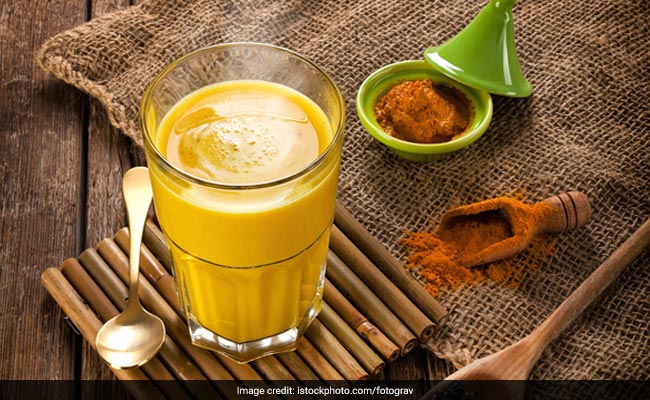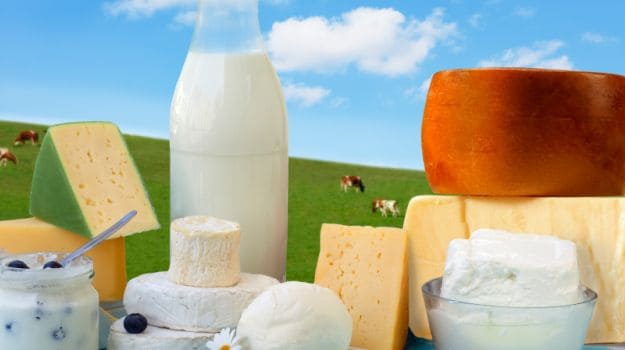You nose feels stuffy, your eyes are watery and you probably have to deal with a throbbing head. A flu attack is definitely one of the most uncomfortable situations you can be in. Your appetite goes for a toss and you don’t feel like eating or drinking anything. While you try to revive your immunity with the right nutrition, some people advice not to consume to milk and dairy products if you have a sore throat or a runny nose.It is a common belief that milk and other dairy products increase the production of phlegm in the body that can make the symptoms of flu worse. Phlegm is the sticky mucous that gets accumulated in your nose and drips back to your throat when you have a cold increasing the risk of infection. Should you really avoid dairy when you have cold? Or is it just one of those myths that everyone believes to be true? Let’s find out.(Also read: 6 Brilliant Home Remedies for a Throat Infection )

A study conducted for the US National Library of Medicine, National Institutes of Health showed no association between milk intake and mucus production in adult volunteers. 60 volunteers were challenged with rhinovirus-2, and daily respiratory symptoms and records of their milk and dairy product intake were kept for a period of 10 days. The participants consumed zero to 11 glasses of milk per day and even responded to a questionnaire where some of them stated that they reduced milk intake believing that it increases phlegm production. The researchers concluded that they found no significant association between milk intake and increase in the symptoms of congestion or nasal secretion. In fact, those who reduced milk intake believing that ‘milk makes mucous’ reported more cough and congestion symptoms.
There have been other critical studies that show that drinking milk may make phlegm thicker and may also irritate your throat as tends to stick to the surface but it does not make your body produce more phlegm. Another study that proves that this advice is probably a myth was published in the Journal of the American College of Nutrition which shows in individual immunized with the common cold virus, milk intake was not associated with increased nasal secretions, symptoms of cough, or congestion. However, the team of researchers did document few cases in which people with a cow’s milk allergy showed asthma-like symptoms.

We asked Consultant Nutritionist Dr. Rupali Datta to clear our doubts. According to her, “There is no contraindication for this in Allopathic medicine. In fact, if you are on antibiotic medicines, probiotics are all the more necessary. Warm fluids such as Haldi Doodh will give you nourishment and open up your throat. Ice cream and other cold dairy products, however, should be avoided as they irritate the stomach and throat. Eat and drink what you are comfortable with, there are no hard and fast rules regarding dairy products. Kheer, custard and warm fluids may actually do more good than harm when you’re suffering from cold. “(Also Read: A Secret Ingredient That Turmeric Milk is Incomplete Without )
 Dr. Supriya Bali, Senior Consultant and Associate Director, Internal medicine, Max Super Specialty Hospital in New Delhi agrees, "It is a myth that dairy products are not to be consumed at all if you are suffering from cold. However, it is advisable to consume curd and milk at room temperature.”One reason why some people may feel heavy or clogged after having a glass of milk, especially when suffering from cold, is perhaps because milk is an emulsion and so, when it combines with your saliva it, it tends to form droplets in clusters which is also known as flocculation. This may make people feel sticky and blocked in the throat and give them an impression that there is more mucous present now.Mucous plays an important role in our physiology. The mucous membranes are known to protect the tissues of our lungs, windpipe, food pipe and the stomach from damage. So, your body does need it but too much of it can pose of problem especially if you have cold when your body is producing extra as result of the viral infection. Taking steam, gargling with salt water and drinking warm fluids can help in getting rid of the excess mucous but you don’t really have to avoid dairy products as long as you experience any uncomfortable symptoms after consuming them. In that case, you must consult your doctor before you take any decision.
Dr. Supriya Bali, Senior Consultant and Associate Director, Internal medicine, Max Super Specialty Hospital in New Delhi agrees, "It is a myth that dairy products are not to be consumed at all if you are suffering from cold. However, it is advisable to consume curd and milk at room temperature.”One reason why some people may feel heavy or clogged after having a glass of milk, especially when suffering from cold, is perhaps because milk is an emulsion and so, when it combines with your saliva it, it tends to form droplets in clusters which is also known as flocculation. This may make people feel sticky and blocked in the throat and give them an impression that there is more mucous present now.Mucous plays an important role in our physiology. The mucous membranes are known to protect the tissues of our lungs, windpipe, food pipe and the stomach from damage. So, your body does need it but too much of it can pose of problem especially if you have cold when your body is producing extra as result of the viral infection. Taking steam, gargling with salt water and drinking warm fluids can help in getting rid of the excess mucous but you don’t really have to avoid dairy products as long as you experience any uncomfortable symptoms after consuming them. In that case, you must consult your doctor before you take any decision.

Flu attacks are seasonal in nature and occur when the body's immunity is low. Photo Credits: iStock
A study conducted for the US National Library of Medicine, National Institutes of Health showed no association between milk intake and mucus production in adult volunteers. 60 volunteers were challenged with rhinovirus-2, and daily respiratory symptoms and records of their milk and dairy product intake were kept for a period of 10 days. The participants consumed zero to 11 glasses of milk per day and even responded to a questionnaire where some of them stated that they reduced milk intake believing that it increases phlegm production. The researchers concluded that they found no significant association between milk intake and increase in the symptoms of congestion or nasal secretion. In fact, those who reduced milk intake believing that ‘milk makes mucous’ reported more cough and congestion symptoms.
There have been other critical studies that show that drinking milk may make phlegm thicker and may also irritate your throat as tends to stick to the surface but it does not make your body produce more phlegm. Another study that proves that this advice is probably a myth was published in the Journal of the American College of Nutrition which shows in individual immunized with the common cold virus, milk intake was not associated with increased nasal secretions, symptoms of cough, or congestion. However, the team of researchers did document few cases in which people with a cow’s milk allergy showed asthma-like symptoms.

Milk is a rich source of carbohydrates and proteins, and not linked to phlegm production. Photo Credit: iStock
We asked Consultant Nutritionist Dr. Rupali Datta to clear our doubts. According to her, “There is no contraindication for this in Allopathic medicine. In fact, if you are on antibiotic medicines, probiotics are all the more necessary. Warm fluids such as Haldi Doodh will give you nourishment and open up your throat. Ice cream and other cold dairy products, however, should be avoided as they irritate the stomach and throat. Eat and drink what you are comfortable with, there are no hard and fast rules regarding dairy products. Kheer, custard and warm fluids may actually do more good than harm when you’re suffering from cold. “(Also Read: A Secret Ingredient That Turmeric Milk is Incomplete Without )

Turmeric milk is one of the best-known home remedies for a sore throat. Photo Credits: iStock
Advertisement







